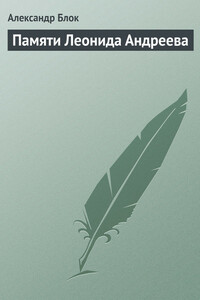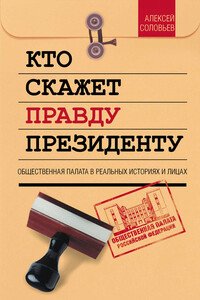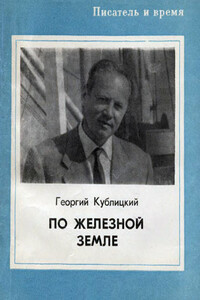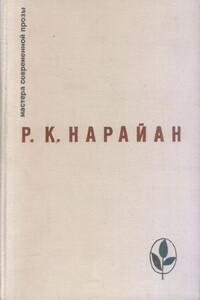День, когда рухнул мир - [18]
Once upon a time I wrote a story about a front line soldier who, on going to the front, addressed his beloved with the following words: " We shall lead a well-to-do life after the war." But he returned crippled. We have been living in peace for forty five years already, but neither the soldiers of the War of the Fatherland, nor their sons, nor their grandchildren, participants in the Afghan War, have lived normal lives. The time rolls by, but grief remains on earth, non the less. The whole world has changed after the war, but paradoxically enough the vanquished lead prosperous life and the victors suffer from ignorance and poverty.
We must realize once and for all that political idle fancies and a chimera of the bright future have suppressed the forces of reason and creativity. This is especially valid concerning all that is pertinent to nuclear violence. Going into raptures over military might is vicious. The greatness of a state is defined by its attitude toward man and his lifestyle. Earth men must realize themselves in practice as a single knitted family. At least we must understand that values common to all mankind must be give top priority, vis-a-vis military and position-of-strength aspirations. Unwise politics has always made a rod for its own back.
In the Abai region, where for over forty years there sounded nuclear explosions, a mother of three leukemia-affected children called for help, pleading with me thus: "Brother, help me! We are dying. For God’s sake save my children!" And my ears are still ringing with that wretched woman’s voice. One more time I ask the question: "What should the writer’s stand be?" And probably, I won’t be able to find a reply til my very last day.
But, turn to look the children in the face, who suffer from ailments. Don’t pass by; lend a helping hand; do something good for them. You can.
Neither happiness, nor peace will there be on Earth, if a child, worn out by disease, cries and languishes; no achievements, boons or satiety then justify mankind.
My dear compatriot! I would like to tell you that we cannot just remain passive witnesses of what is going around. I am sure of your support, and I am addressing the Regional Soviet of People’s Deputies, with a request to allow me to open in Semipalatinsk, an account for "The Foundation for Children-Victims of Nuclear Tests." The anti-nuclear "Nevada-Semipalatinsk" movement befittingly accomplishes its main task of stopping nuclear tests in the whole world. The foundation in question is to alleviate the fate of sick children, cripples, orphans, large families, particularly, the children stricken by ecological catastrophes and natural calamities. The encouragement and practical support of doomed children is a constituent part of the nuclear test victims’ movement.
I donated my emoluments from the book "The Day the World Collapsed", dealing with the first H-bomb testing and devoted to the citizens of Nevada and Semipalatinsk to the Foundation. More than that, the Foundation will be receiving part of my royalties for every new book put out at home and abroad, as well as the money I receive for my public appearances. My first contribution will amount to 30,000 rubles. My desire to establish the Foundation has fervently been supported by my counterparts, my friends, by public figures and private citizens in Japan, Finland, Germany and Hungary who are prepared to cooperate with the Foundation. What is more, charitable commercial joint ventures will be established by mutual agreement and individual donations will be received from the citizens of various countries.
I am urging everyone not to abandon or leave our children in trouble. The Koran and the Gospel say that a repentant sinner is dearer than a righteous man. I continue by addressing my colleagues, men of art, all those who wish to hear me.
I wish to believe that the insane nuclear age will be gone, and human civilization, which has been gained through much suffering of the best human minds, will eventually survive, thanks to tolerance and humanness. And, as this is so, we could with the sense of discharged duty, transfer the fruits of world civilization to generations to come. The future belongs to children!
Respectfully submitted,
Rollan Seisenbayev
Writer, Moscowp. s. More, I am planning to compile a book composed of the letters and diaries of those who suffered from the nuclear Moloch. April 6,1990
TEXT OF SPEECH ROLLAN SEISENBAYEV
We who have gathered here today are ubited by our common concern for peace, charity and humanity in the world.
A healthy civilization is founded upon, and derives its strengh from, its commitment no common goals.
Harry Truman once told Dean Rusk that the Presidency of the Rockefeller Soundation was the best job one could ever have.
In the 1960 s, the Rockefeller Foundation funded the construction of a modest hospital and medical school in Beijing. Today they have become the Center of Chinese Medicine.
I am proud to say that our fund is now affiliated with the Center.

"Литературная газета" общественно-политический еженедельник Главный редактор "Литературной газеты" Поляков Юрий Михайлович http://www.lgz.ru/.

«Почему я собираюсь записать сейчас свои воспоминания о покойном Леониде Николаевиче Андрееве? Есть ли у меня такие воспоминания, которые стоило бы сообщать?Работали ли мы вместе с ним над чем-нибудь? – Никогда. Часто мы встречались? – Нет, очень редко. Были у нас значительные разговоры? – Был один, но этот разговор очень мало касался обоих нас и имел окончание трагикомическое, а пожалуй, и просто водевильное, так что о нем не хочется вспоминать…».

Деятельность «общественников» широко освещается прессой, но о многих фактах, скрытых от глаз широких кругов или оставшихся в тени, рассказывается впервые. Например, за что Леонид Рошаль объявил войну Минздраву или как игорная мафия угрожала Карену Шахназарову и Александру Калягину? Зачем Николай Сванидзе, рискуя жизнью, вел переговоры с разъяренными омоновцами и как российские наблюдатели повлияли на выборы Президента Украины?Новое развитие в книге получили такие громкие дела, как конфликт в Южном Бутове, трагедия рядового Андрея Сычева, движение в защиту алтайского водителя Олега Щербинского и другие.

Курская магнитная аномалия — величайший железорудный бассейн планеты. Заинтересованное внимание читателей привлекают и по-своему драматическая история КМА, и бурный размах строительства гигантского промышленного комплекса в сердце Российской Федерации.Писатель Георгий Кублицкий рассказывает о многих сторонах жизни и быта горняцких городов, о гигантских карьерах, где работают машины, рожденные научно-технической революцией, о делах и героях рудного бассейна.

Свободные раздумья на избранную тему, сатирические гротески, лирические зарисовки — эссе Нарайана широко разнообразят каноны жанра. Почти во всех эссе проявляется характерная черта сатирического дарования писателя — остро подмечая несообразности и пороки нашего времени, он умеет легким смещением акцентов и утрировкой доводить их до полного абсурда.